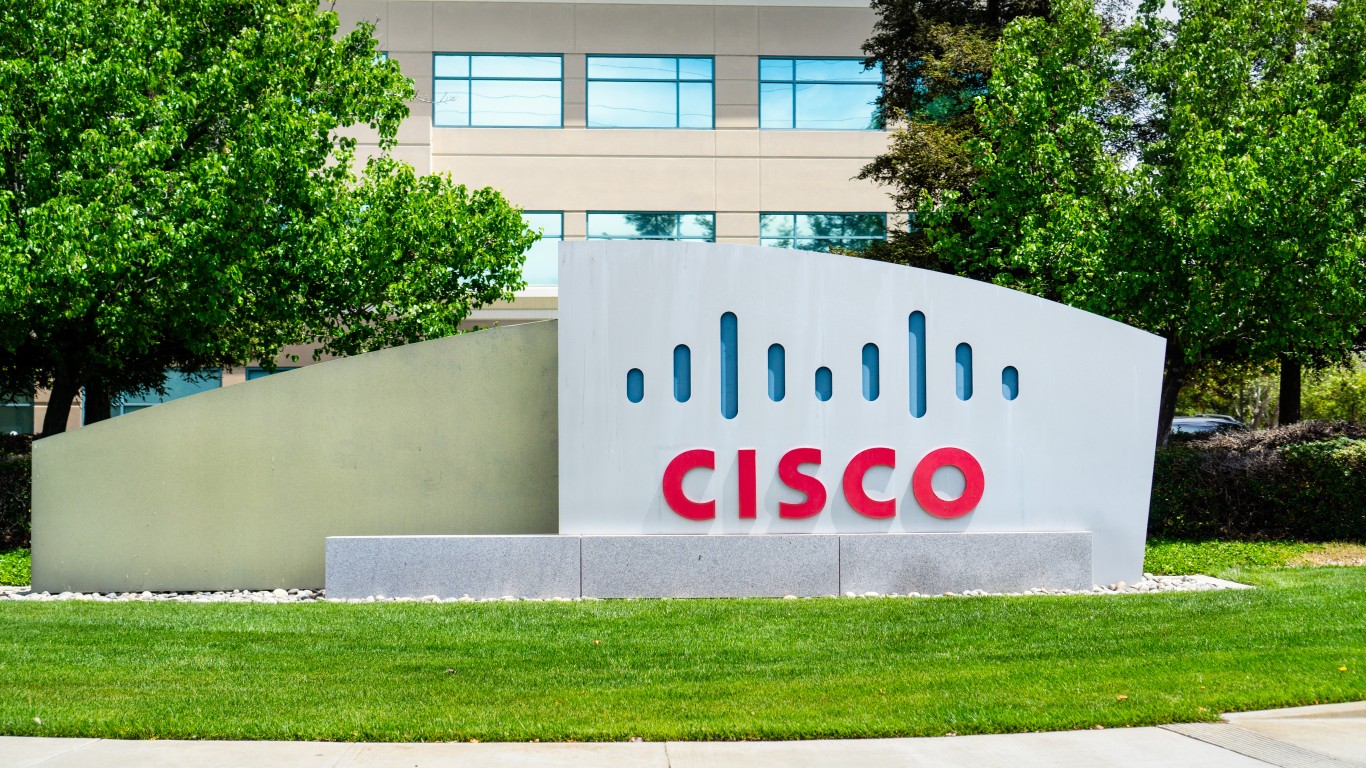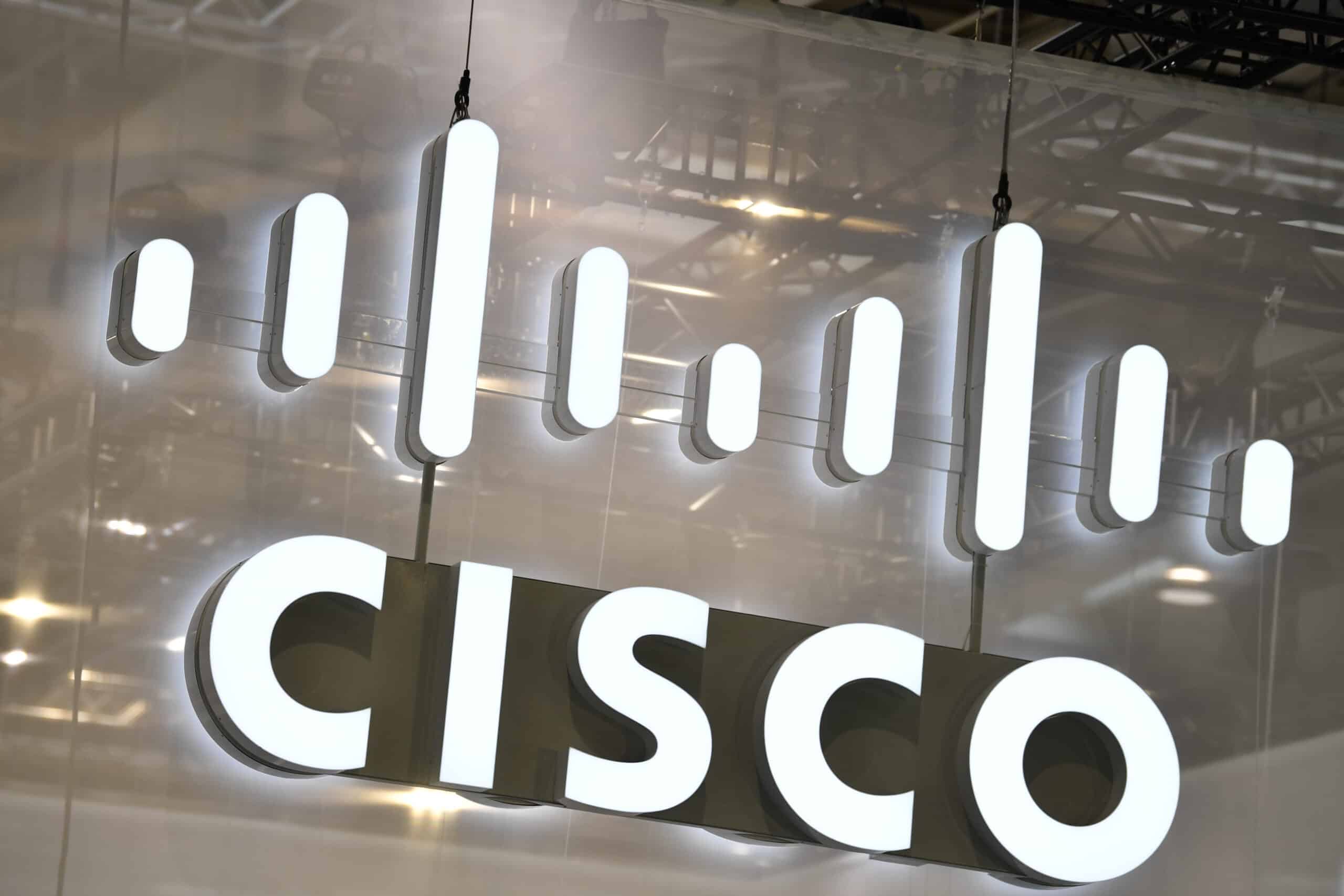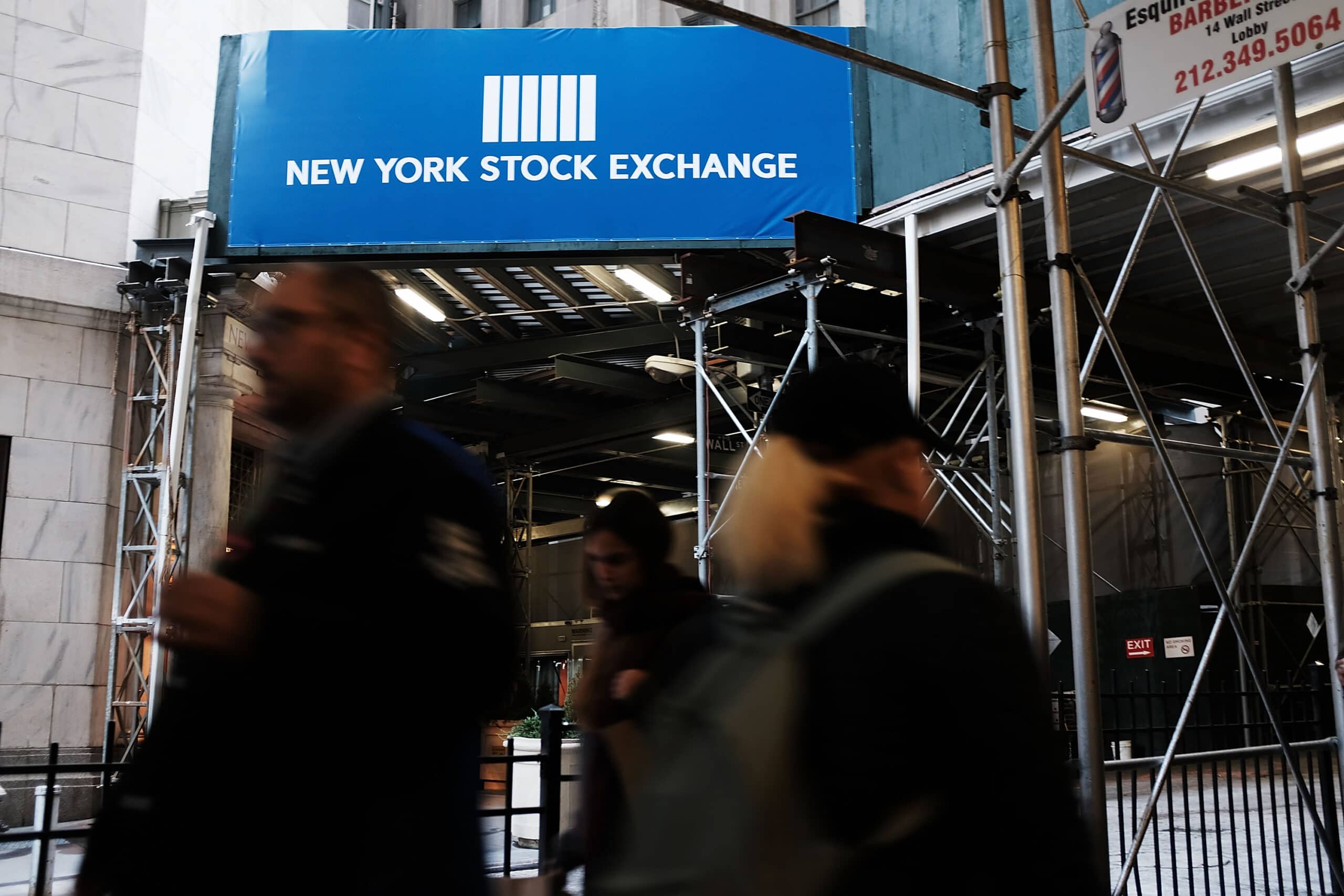
Before the turn of the century, technology investors always held a core of top companies, some of which are still state of the art and have grown their product offerings and services. The best example is Microsoft Corporation (NASDAQ: MSFT), which has expanded from its primary software product to offer Microsoft Azure, a cloud computing service that rivals Amazon.com, Inc. (NASDAQ: AMZN) AWS cloud service.
One prominent 1990s tech player that has been slow to up their game is Cisco Systems, Inc. (NASDAQ CSCO), initially a networking gear and routers maker founded in 1984 by Leonard Bosack and Sandy Lerner. The company’s early multi-protocol router was instrumental in shaping the internet in the early days.
While the company is still one of the largest technology companies with over $51 billion in revenue and more than 83,000 workers, we found seven reasons investors should look for better technology ideas.
Cisco looks like the classic value trap.

Trading at a reasonable 14.5 times trailing earnings and sporting a solid 3.25% dividend, the company is a value investor’s dream, and many feel a value trap. The stock’s consensus price target is $49.43, and the shares closed recently at $48.05. Wall Street analysts don’t see much upside.
Competition is increasing in a big way

The technology sector is incredibly competitive, and Cisco Systems faces established tech giants like Dell Technologies, Inc. (NYSE: DELL), International Business Machines, Inc. (NYSE: IBM), and newer companies like Juniper Networks, Inc. (NASDAQ: JNPR) and Arista Networks (NYSE: ANET)
Cisco Systems products are expensive

Compared to some of the competition, Cisco’s pricing for some of its most extensive product lines is rich, and the licensing terms and conditions for many items are somewhat complex.
The company is losing market share to rivals

Despite diversifying operations and moving to a subscription-based model, which many big-tech companies now employ, the company’s massive size combined with the ease competitors have to enter the firm’s sectors has chipped away at market share.
The Security Segment is solid, but the competition there is also significant

While the company has expanded into the critical security arena with Cisco Security Solutions, which is a cloud-delivered security service edge solution, they face immense pressure from competition like Cloudflare, Inc. (NYSE: NET) and Datadog, Inc. (NASDAQ: DDOG), not to mention the other huge players in the space.
Cisco’s market share is expected to continue to decline

Based on total industry revenues, Cisco Systems’ market share is expected to decrease from 24.36% this year to 17% by 2032, according to various reports. That massive decline can only lead to slower revenue growth over that period. While sure to remain profitable, the earnings will likely not support a higher share price.
Cisco expects lower revenue

In mid-November, the company lowered its full-year revenue estimates and now expects $3.87 to $3.93 in adjusted earnings-per-share and revenue of $53.8 billion to $55 billion.
Cisco Systems may not go anywhere, so investors should avoid the stock. With market share dropping over the next ten years and intense competition for all of the company’s product silos, revenue growth will be challenging to come by. Investors looking for mega-cap technology have better choices now.
Thank you for reading! Have some feedback for us?
Contact the 24/7 Wall St. editorial team.





